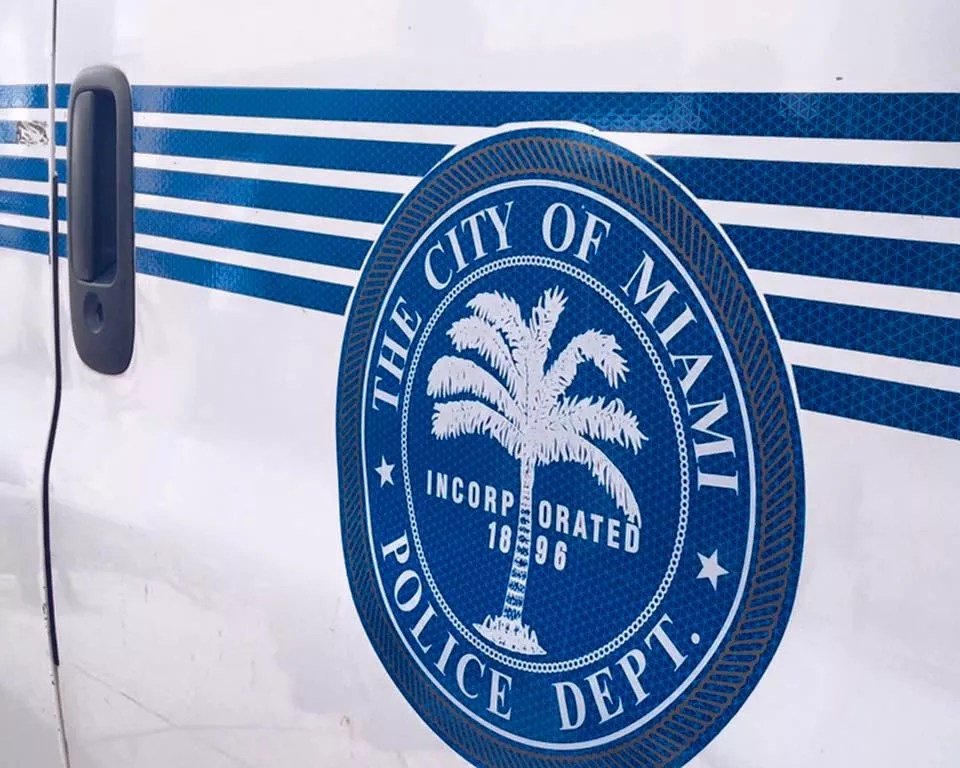
City of Miami Police

Audio By Carbonatix
If a City of Miami Police officer suspects you have drugs in your car, you’d better believe you’ll get arrested. Sure, prosecutors might eventually drop your case or send you to a pretrial diversion program, but there’s also a good shot you could end up in jail. Either way, the process is humiliating and expensive.
But now the cops doing that drug-busting want an automatic second chance if they’re the ones caught snorting, inhaling, injecting, or otherwise
Under the previous contract, Miami cops were automatically disciplined – and potentially fired – if they failed a test for drugs such as cocaine, Ecstasy, and opioids. Miami City Manager Emilio Gonzalez and Miami’s Fraternal Order of Police president, Richard Lugo, tentatively signed off on the updated contract September 11.
The new rules wouldn’t affect cops caught possessing drugs – driving around with an eightball of black-tar heroin would still get you arrested even if you’re a cop. But the proposed more lenient policy for police comes as activists are demanding that MPD stop arresting so many people for low-level drug crimes.
Last month, a New Times investigation showed that, for nearly two years, MPD had signed an agreement to allow police to hand out tickets instead of arrest people caught with small amounts of marijuana – but then the cops simply declined to voluntarily issue any citations. Instead, Miami Police were still arresting hundreds of people. After that story was published, MPD Chief Jorge Colina said he would now force his officers to issue marijuana tickets for first and second offenses.
Other activists have accused MPD officers of selectively arresting poorer black and brown residents for drug crimes even though whites tend to consume drugs at the same rate as people from other races.
The new policy would be far from academic. Multiple MPD cops have been caught doing drugs recently. In January, former Miami Officer Adrian Santos was arrested after he was allegedly caught on videotape snorting cocaine inside Miami’s E11even nightclub.
Ex-Miami Springs Officer Christopher Dweck is suing his former employer after he was fired for testing positive for cocaine and amphetamines. Had he worked under MPD’s potential new policy, Dweck would have been allowed to enter a
There are also basic questions about public safety when it comes to cops using drugs. Showing up to work high or hung-over in fields such as airline piloting, bus driving, surgery, and, yes, police work (unlike jobs such as food delivery and – dare we say it – journalism) could contribute to accidents or even deaths.
Under the new rules, cops would be immediately relieved of duty if they fail a urine or blood test for drugs. But if they front the cost of rehab themselves, they won’t be canned, and while they attend the program, the suspended cops would still receive pay for their unused sick, vacation, and personal time.
Officers wouldn’t be allowed back on duty unless a drug-rehab administrator says, in writing, that there’s no likelihood an officer would use drugs again. The rules would even allow cops to return to work during a drug-rehab program as long as an administrator signed off on it.
If they get their jobs back after completing rehab, officers would be subject to additional drug screenings for the next two years. Failing a second drug test would lead to immediate termination.
Javier Ortiz, Miami’s Fraternal Order of Police vice president, did not respond to a message from New Times yesterday about the policy change.